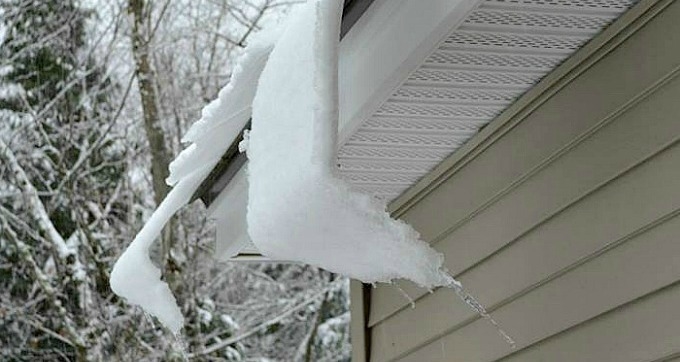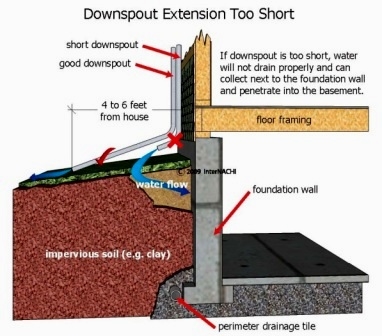 Water is always eager to make its way into our living spaces. One crack is all that is needed to cause a serious problem in any indoor environment. As temperatures increase after a snowy winter, homeowners should be aware of vulnerable areas such as rooftops, windows, and other possible ports of entry. Home inspectors Nick Gromicko and Ethan Ward of the International Association of Certified Home Inspectors say basements are particularly susceptible.
Water is always eager to make its way into our living spaces. One crack is all that is needed to cause a serious problem in any indoor environment. As temperatures increase after a snowy winter, homeowners should be aware of vulnerable areas such as rooftops, windows, and other possible ports of entry. Home inspectors Nick Gromicko and Ethan Ward of the International Association of Certified Home Inspectors say basements are particularly susceptible.
Basements are typically the area of a structure most at risk for water damage because they are located below grade and surrounded by soil. Soil releases water it has absorbed during rain or when snow melts, and the water can end up in the basement through leaks or cracks. Water can even migrate through solid concrete walls via capillary action, which is a phenomenon whereby liquid spontaneously rises in a narrow space, such as a thin tube, or via porous materials. Wet basements can cause problems that include peeling paint, toxic mold contamination, building rot, foundation collapse, and termite damage. Even interior air quality can be affected if naturally occurring gasses released by the soil are being transmitted into the basement.
 Gromicko and Ward encourage homeowners to check all gutters and downspouts, making sure that melting snow is routed away from the building. Ideally all water pooling should occur at least 10 feet from the home. This is something important to check when buying or renting a home. (For more information, see our section on Home Buying Tips.)
Gromicko and Ward encourage homeowners to check all gutters and downspouts, making sure that melting snow is routed away from the building. Ideally all water pooling should occur at least 10 feet from the home. This is something important to check when buying or renting a home. (For more information, see our section on Home Buying Tips.)
If you suspect moisture is creeping into your basement, a moisture meter is a simple and affordable way to check for water intrusion. Moisture meters are available for less than $30 on Amazon or at your local home improvement center.
Gromicko and Ward offer suggestions for repairing cracks using a mixture of epoxy and latex cement for smaller cracks, or mortar for cracks more than 1/8 inch. In addition, they provide specifics for applying sealants to walls and floors. See their article Basic Waterproofing for Basements to learn more.
When it comes to melting snow, a little awareness and pro-action can go a long way toward enjoying the spring thaw!